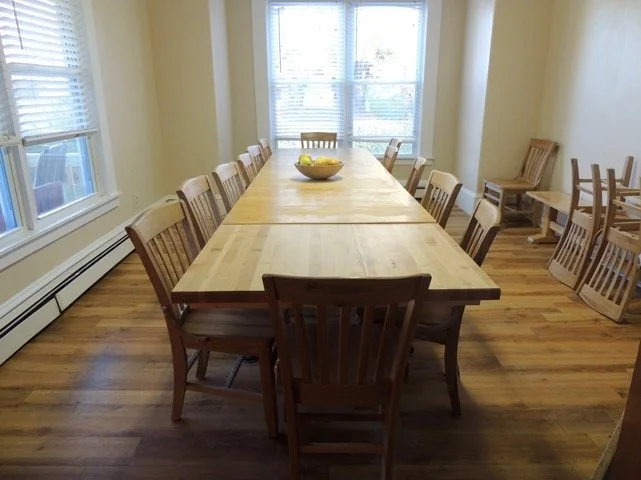Residential Treatment
Brett’s Place
Brett Shovlin
(1984-2021)
Brett’s Place is a 14-bed, 3.5 ASAM level of care located in Wakefield, named in memory of Brett Shovlin (1984-2021). This 14-bed high intensity residential facility focuses on post crisis care, allowing clients to stabilize and work on their recovery goals in a relaxing, structured environment. The key is stabilization and structure.
We utilize evidence-based practices and motivational enhancement strategies to promote the desire to change, resulting in an improved treatment experience. Daily, we practice recovery-positive living skills, including adherence to a schedule of productive daily activities. Families can become involved in treatment when requested by the client.
Our medical team monitors our clients daily for non-emergent situations, provides medication management and can quickly arrange for services appropriate to the level of a client’s medical condition. We have arranged access to services 24/7. Random drug screening helps benchmark progress and reinforce treatment.
This level of care aids in improving the ability to structure and organize the tasks of daily living and recovery. Having this structure allows clients to develop coping skills as well as apply their learned recovery skills to everyday living. This prepares them to be integrated back into the community. Upon completion, we hope clients will step down to our next level of care at Galilee House.
Galilee House
Galilee House is a 16-bed, 3.1 ASAM level of care located in the seaside town of Narragansett. Work is a major emphasis of the program. Residents are required to find a job within a few weeks of admission. We cater to a higher functioning person who is focused on getting back to their lives. Our treatment program is based on the 12-Step principles of recovery. We utilize evidence-based therapy as well as other proven clinical methods to practice relapse prevention skills and effective decision making. Having this safe, structured environment allows clients to practice their recovery skills.
We provide at least 5 hours per week of group and individual counseling that focuses on maintaining the stability the client gained in the early stages of treatment. Education encompasses; relapse prevention, positive choices, relationships, feelings, coping and other topics to help develop a secure sense of self first, then develop a socially supportive, recovery friendly network. We encourage supportive family involvement and welcome significant others to help rebuild and heal relationships. Assessment, individualized treatment planning and regular progress noting are a part of the documentation used to help each client see their own progress on paper.
Residents are required to attend community-based self-help groups, participate in individual and group counseling, join in weekly activity therapy and perform household chores. Once the resident graduates, moving forward is not so challenging. We are with them every step of the way.
Monitoring daily medication adherence, assistance in obtaining a primary care provider and consultation with other health providers along with a physical exam at admission is the focus of our medical professionals. Random drug screening at this level reinforce treatment goals.
Within a short time, we see recovery positive attitudes and behaviors. Attention to achieving activities of daily living, personal appearance, maintaining health, taking medications regularly and eating a proper diet become automatic and lend to a positive outcome.



